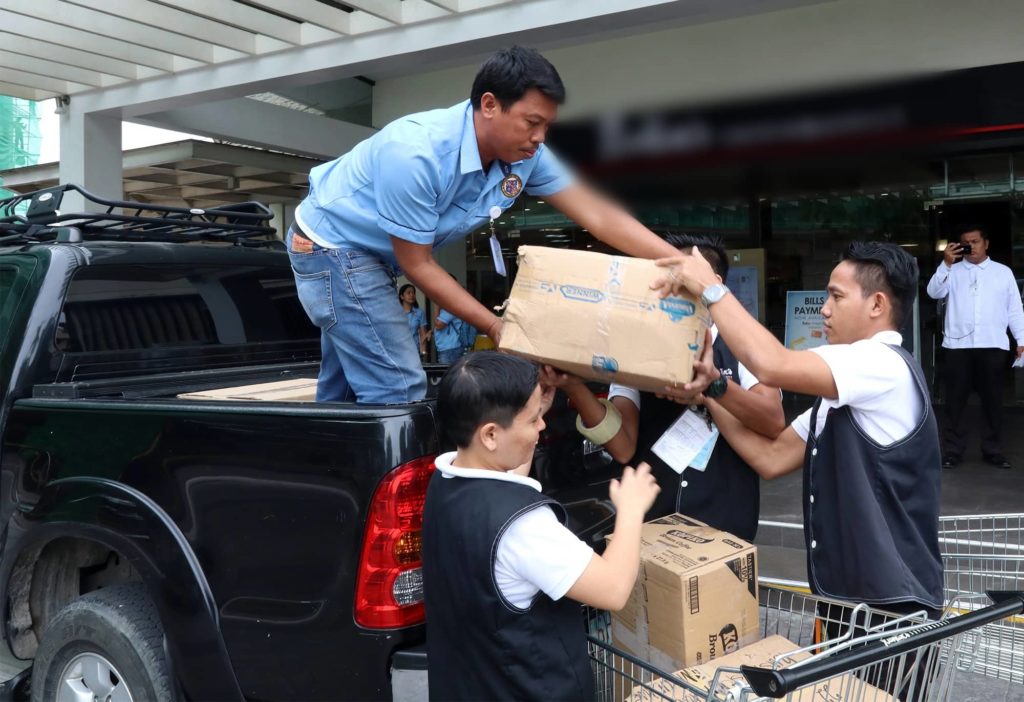
Members of the Provincial Task Force on African Swine Fever confiscte pork products from Luzon that were still displayed during their inspection in grocery stores in Mandaue City and Cebu City on Thursday, Ocotber 10. /Photo courtesy of the Provincial Information Office
CEBU CITY, Philippines — Aside from seaports and transport terminals, Cebu’s African Swine Fever (ASF) Task Force has started to look into online selling platforms to prevent distribution of pork products from Luzon.
This after the ASF Task Force apprehended last Friday, October 11, a man from Talisay City who sold Pampanga-sourced tocino online.
Provincial Veterinarian Dr. Mary Rose Vincoy said they received a tip from a concerned citizen that a Facebook page with the name, Negosyo ni RHOX Sari-Sari, was selling Luzon-brand pork products.
Live hogs, pork, and pork-related products from Luzon are banned here in Cebu and 55 other provinces due to the prevailing ASF situation in several provinces there.
Read more: Pork from Luzon still banned in Cebu despite DILG order
Despite appeals from traders, Agriculture Secretary William Dar and Interior and Local Government Secretary Eduardo Año to lift the ban, Cebu Governor Gwendolyn Garcia maintained that the ban shall remain to protect the province’s P10.9-billion swine industry.
Garcia’s decision is backed by groups of pork producers, National Meat Inspection Services in Central Visayas (NMIS-7) and the Samahang Industry ng Agrikultura (Sinag).
Although eating ASF-contaminated pork have no proven effect on humans, the virus poses 100 percent mortality rate when it gets contracted by hogs.
Vincoy said the seller was issued with a cease and desist order by the Legal Office of Talisay City as he also lacks business permit to sell the products.
While the entry of Luzon-sourced pork took effect in September yet, Vincoy said the pork products being sold online maybe among those that were ordered to be pulled out from grocery stores and supermarkets.
The ASF Task Force, meanwhile, continues to monitor supermarkets and wet markets for presence of pork and pork-related products coming from Luzon and the 22 countries that have confirmed ASF cases.
South Korea is the latest addition to the list of countries that have confirmed ASF cases.
Read more: Korean stores in Cebu told to pull out pork products from South Korea
The Cebu-Korean Association has already committed last Thursday, October 10, that they would pull out their South Korea-sourced meat products that were manufactured within January 2019 up to the present from their store shelves.
Vincoy said they had coordinated with the veterinarians of the metro cities to ensure that the stores have complied with the agreement.
Cebu Province, also in September, passed an ordinance that imposes a fine of up to P5,000 for those who will be proven to facilitate the entry or distribute the pork products from the banned countries within the province’s jurisdiction./dbs